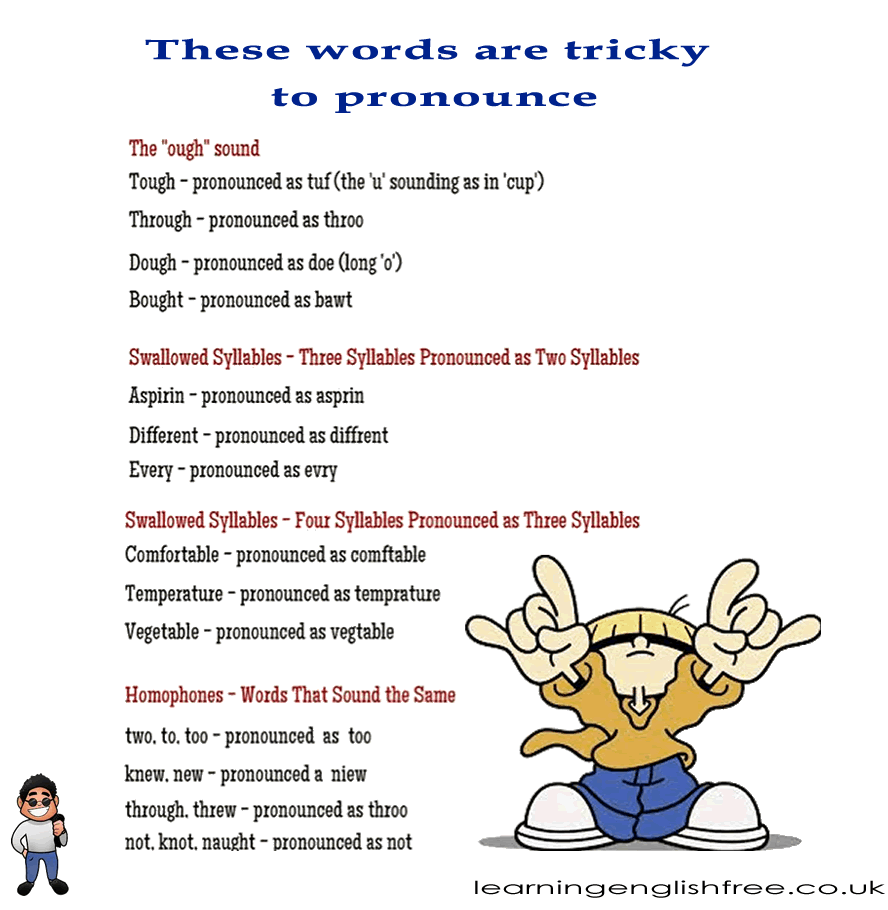Tackling the "ough" Sound

Navigating the Complexities of "ough"
The English language is filled with pronunciation challenges, and the "ough" sound is a prime example. Words like 'tough,' 'through,' 'dough,' and 'bought' each have a different pronunciation despite the same spelling pattern. This section will explore these variations, understand why they exist, and provide tips for mastering their correct pronunciation.
Swallowed Syllables: Syllable Reduction
Streamlining Pronunciation in Longer Words
English often swallows syllables in longer words, making pronunciation less intuitive. Words like 'aspirin,' 'different,' 'every,' 'comfortable,' 'temperature,' and 'vegetable' are commonly condensed in everyday speech. This part of the lesson will focus on these patterns, explaining why they occur and how to practice them effectively.
Understanding Homophones
Mastering Words with Identical Sounds
Homophones are words that sound the same but have different meanings and sometimes different spellings, like 'two,' 'to,' 'too,' 'knew,' 'new,' 'through,' 'threw,' 'not,' 'knot,' and 'naught.' This section will guide learners through these tricky pairs, offering strategies to remember their distinct uses and meanings.
Enhancing Pronunciation Skills
By the end of this lesson, learners will have a deeper understanding of some of the English language's tricky pronunciation aspects. They will learn the varied sounds of the "ough" spelling, the common practice of syllable swallowing in longer words, and the peculiarities of homophones. Remembering these pronunciation rules can be aided by listening to native speakers, practising aloud, and using mnemonic devices.
We encourage learners to practice these words in context, as real-world application helps in cementing their pronunciation. For further learning and pronunciation practice, don't hesitate to visit www.facebook.com/learningenglishfree.co.uk.
